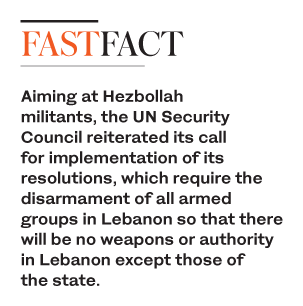Israel to demolish Palestinian murder suspect’s home
JERUSALEM: The Israeli Army said on Sunday it had started preparations to demolish the West Bank home of a Palestinian suspected of killing an Israeli woman.
“Overnight, troops operated in Hebron, where the suspect in the murder of Ori Ansbacher is from,” the army said in an English-language statement.
“During the operation, the troops surveyed the suspect’s house in order to examine the possibility of its demolition.”
The suspect was arrested over the weekend and has not yet been charged.
The body of Ansbacher, 19, was found late on Thursday in southeast Jerusalem, and she was buried the next day in her Israeli settlement of Tekoa.
Israeli security forces arrested the suspect in a raid in the occupied West Bank city of Ramallah.
The Shin Bet security service named him as 29-year-old Arafat Irfaiya from Hebron.
Both the police and Shin Bet have said investigations have so far not found conclusively whether the killing was a “terrorist attack” or from other motives.
In the runup to Israel’s general election in April, however, politicians and Israeli media appeared to have no such doubts on Sunday.
“I have no doubts about the nationalist motives of the murderer,” Public Security Minister Gilad Erdan told public radio.
“After so many years of suffering from terror we should know — this is a nationalist attack.”
Commenting on calls to execute Palestinian militant killers, Erdan said he was in favor of applying the death penalty in certain circumstances.
“If it becomes clear that there is no possibility of rehabilitating the murderer and that he abused his victim, in such cases capital punishment should be applied,” he said.
“The time has come to employ the death penalty for terrorists, as the law allows us to do,” the daily Maariv quoted MP Bezalel Smotrich of the far right Jewish Home party as saying.
Despite a court gag order, Israeli social media were abuzz over the weekend with what Yediot Aharonot newspaper called “graphic descriptions about the alleged nature of the murder.”
Police called on the public not to share “publications and reports, especially on social media, about the circumstances of the murder case, including irresponsible horrific descriptions.”
“We hereby clarify that those are completely baseless publications,” police said.

Netanyahu vows to freeze Palestinian funds after Israeli teen killedIsrael arrests Palestinian suspect in teenager’s killing


 Rival political groups had been locked in disagreement over the makeup of a new government since May, after the country’s first parliamentary elections in nine years. A breakthrough became possible after weeks of backroom deals as Lebanon’s economic woes mounted.
Rival political groups had been locked in disagreement over the makeup of a new government since May, after the country’s first parliamentary elections in nine years. A breakthrough became possible after weeks of backroom deals as Lebanon’s economic woes mounted.
